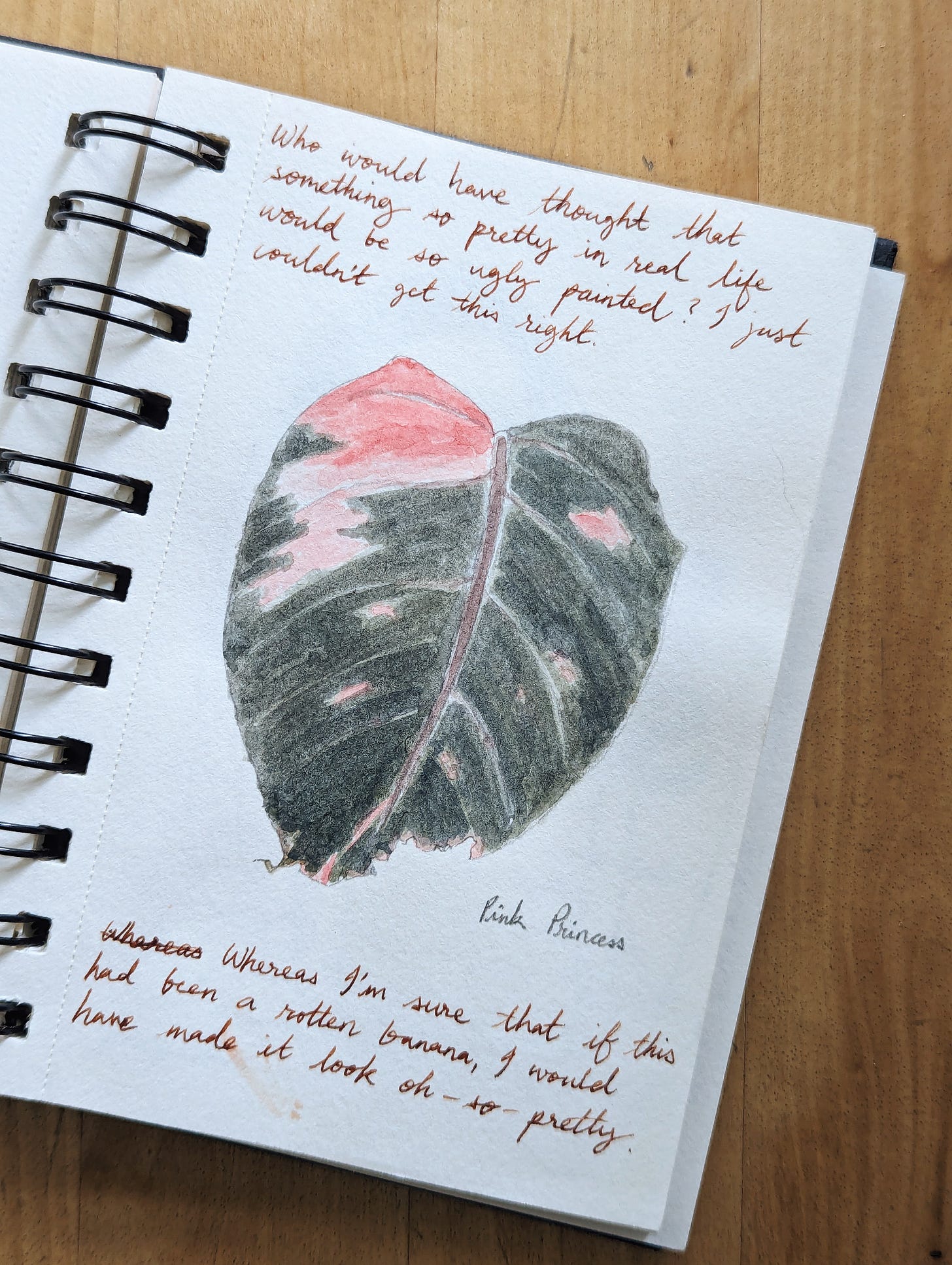I recently took down an extra-large weaving loom that my father made for me a couple of years ago. I’d been hanging it high on a wall, almost touching the ceiling, to keep it out of the way of daily life. It’s a thin rectangular wooden frame, 1.5 meters long, with little pegs going all around it. It’s never come close to being used in all this time, but I took it down because I finally know what I want to weave on it. Or do I?
“She could see it all so clearly, so commandingly, when she looked: it was when she took her brush in hand that the whole thing changed. It was in that moment’s flight between the picture and her canvas that the demons set on her who often brought her to the verge of tears and made this passage from conception to work as dreadful as any down a dark passage for a child.” - To The Lighthouse, Virginia Woolf
Perhaps not demons exactly, but I do experience Blank Page Despair (BPD) now and then, when conditions are ripe for it. It doesn’t really matter what it is; it could be the gaping mouth of an empty loom, or a sheet of watercolour paper, or a blinking cursor at the top of a draft. These voids waiting to be filled with some monumental creative stroke (whether of genius or otherwise) can sometimes trigger BPD thoughts: I am just not good enough; failure is more than likely; the glorious edifice I hope to construct will end up being a ramshackle shed instead.
To be clear, this doesn’t happen with all blank pages. Most times, I have no qualms messing about with amateurish creative explorations—and some of my worst artistic failures have brought a rather masochistic sense of awe. (“Wow, that green is absolutely hideous, how did I even accomplish that? Ha ha!”)
Failure or success, in such cases, doesn’t overly bother or delight me. It’s all in good fun, and all part of the learning.
Whereas BPD tends to occur when the stakes have become higher in some way. These are the creative projects which feel less like casual journal entries or preliminary sketches and more like The Thing Itself. They are the stories, the art, the music, the poetry that require us to be more vulnerable in the making of them; if not because of the content, then because of the earnestness with which we attempt to create or share it. It’s those instances where we have something rather important to say, and now—oh dear—how do we say it?
“Whereas the truth is that fullness of soul can sometimes overflow in utter vapidity of language, for none of us can ever express the exact measure of his needs or his thoughts or his sorrows; and human speech is like a cracked kettle on which we tap crude rhythms for bears to dance to, while we long to make music that will melt the stars.” - Madame Bovary, Gustave Flaubert
If Woolf and Flaubert feel this way, then surely, there is no hope for the rest of us.
The question that I have when faced with a creative challenge of this sort is not so much how am I to avoid failure, but rather, how am I to proceed when I know that failure is probable. I am no genius. Now what? How do I even begin?
Well, the answer is simple. I just must. And do.
Upon seeing this photograph of the tiniest little square in all that loom, a friend said, “It’s strangely moving, like a child stepping out of the house.” I thought that quite accurately describes the feeling of beginning any sort of creative work. It is like opening a door and stepping out with little quivering feet, and then pushing forward with almost naive obstinacy and courage, pretending that failure is not round the corner.
This sort of pretend-play is familiar to me.
I am not a good musician. Every time I sit down at the piano, I know full well that I will never get to the end of a score without making at least a handful of mistakes. Failure is all but guaranteed. And yet, each time I sit down, I pretend that I don’t know this. I position my hands on the keys, and I hit the first three notes to Beethoven’s Sonata 8 as if I will hit all the hundreds that follow. I have done this for years, and I probably will continue to do this for many years more. Because the alternative of silence is more terrifying than a cracked voice.
This weaving might end up being rather silly. It is hard to tell at this point. But I have something to say and I'm determined to say it, even if only to the bears.









ah the paralysis of starting / fear of making mistakes...especially when paid / perceived higher stakes; like a presentation to "major" people, or a "serious" date haha..but yes, let's 'just do it' (as your piece says in the many words this concept needed to do it justice!)